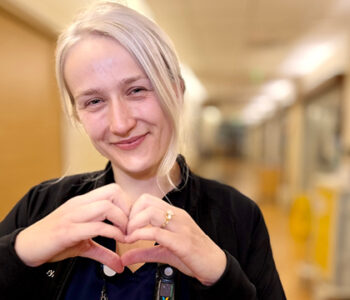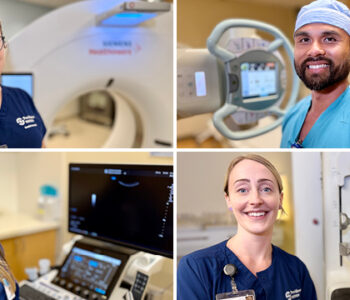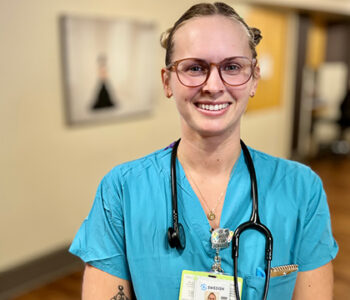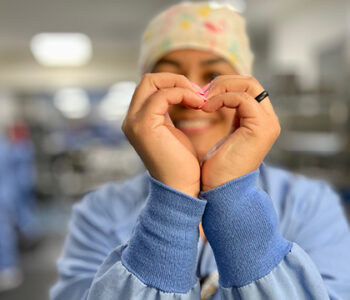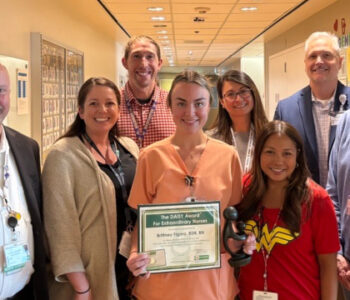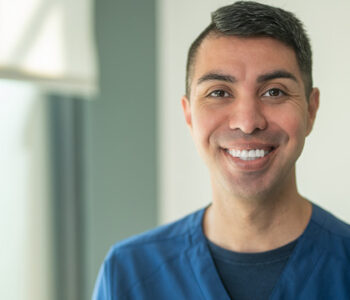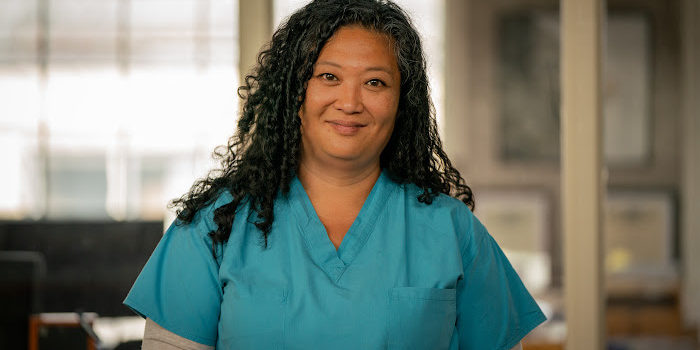 Job Spotlight
Job Spotlight
Tips for ICU RN applicants from an experienced nurse supervisor
Nurse supervisor Marie is tasked in large part with hiring for the critical care units at the First Hill campus. We talked with her recently about how she approaches hiring for the units and what she’s looking for in applicants.
A former traveler herself, Marie says she spends much of her workday trying to identify travelers who would be good full-time candidates. She says she goes through profiles and seeks out travelers who she thinks will be assets to the team.
“I’m also part of the peer interview group for our units,” says Marie. “We do a lot of interviewing for new-to-specialty nurses, as well as new graduates and experienced nurses.”
Qualities in an ICU nurse
Marie says that beyond licensure, she looks for experience in larger facilities and multiple ICUs, with strong medical and surgical backgrounds, “because we are a medical surgical ICU. Typically, our patients don’t discharge from our unit, they go to the acute care floors, so that means that they’re getting better.”
“With new nurses, we know that it’s hard to get clinicals in certain areas, but we like to see that because that tells us that they have some type of an interest in critical care and are not coming in totally blind. Another big plus for us is nursing assistants or nurse techs that have worked in the hospital, because then they aren’t as gun-shy talking to physicians, talking to patients, talking to other nurses and having those conversations. Sometimes, difficult conversations.”
Path to the ICU
Marie says RNs end up in ICU in different ways. The first is the residency and fellowship programs. “We have a robust residency and fellowship program for new grads and fellows, or new to specialty. They get to have 14 to 16 weeks of didactic, hands-on clinical training and simulations that they have over at the Cherry Hill campus. We have a very supportive group of professional development specialists, or educators, that come through and meet with the cohorts one-on-one and with their preceptor. They get to talk with them and see how they are doing, if there’s anything that they need extra from us, from the educators. It’s a really supportive, well-structured program. Many join us that way. What’s unique about Swedish is that they actually do accept ICU residencies. Not a lot of hospitals do that.”
In addition, Marie says, “We have a lot of travelers that sign on as staff for our units.” And there are new nurses, as well. “All of the new graduates that we work with usually start in our intermediate care unit, or IMCU. Then after a couple of years, they move to ICU.”
Advice for nurses considering the ICU
One of the best pieces of advice, Marie says, to prepare a nurse for the ICU is to let them know what they’re getting into. “They’re going to get a lot of great experience, but they’re going to be working with a patient population that sometimes can be difficult,” says Marie. “It’s challenging, but it’s very rewarding. And the training is like nursing school on steroids, because it’s working full time and doing all of the classroom and clinical work at the same time. It’s intense, everything packed into a few weeks, but nurses receive a lot of support and feel very good about it after and during, when we’re checking in with them. They’re supported all the way, and anything that they need, anything that we can help to make things easier for them, we’ll do it.”
The culture at Swedish
According to Marie, the culture at Swedish is familial. “Working in the units, it’s like a big family. We’re there for each other, we have each other’s backs, we’re able to have that open communication. We usually say it takes a village, so we’re working together; we all jump in to help that one nurse get their patient admitted. It’s just a very big team effort to make sure that everyone’s feeling supported.”
What’s a rewarding part of working as an ICU nurse?
Marie says, “A lot of times in critical care, you do things and you don’t imagine that it makes as big of an impact for the patient and their families but discover that it does. For example, helping a bed bound patient into a recliner and facing it toward the window so that they have a change of scenery and see that they’re just not in this box with these people all around them all the time. Reminding patients that they’re human beings with families and lives. That’s rewarding.”
Interested in joining us? Check out our critical care nursing opportunities.

